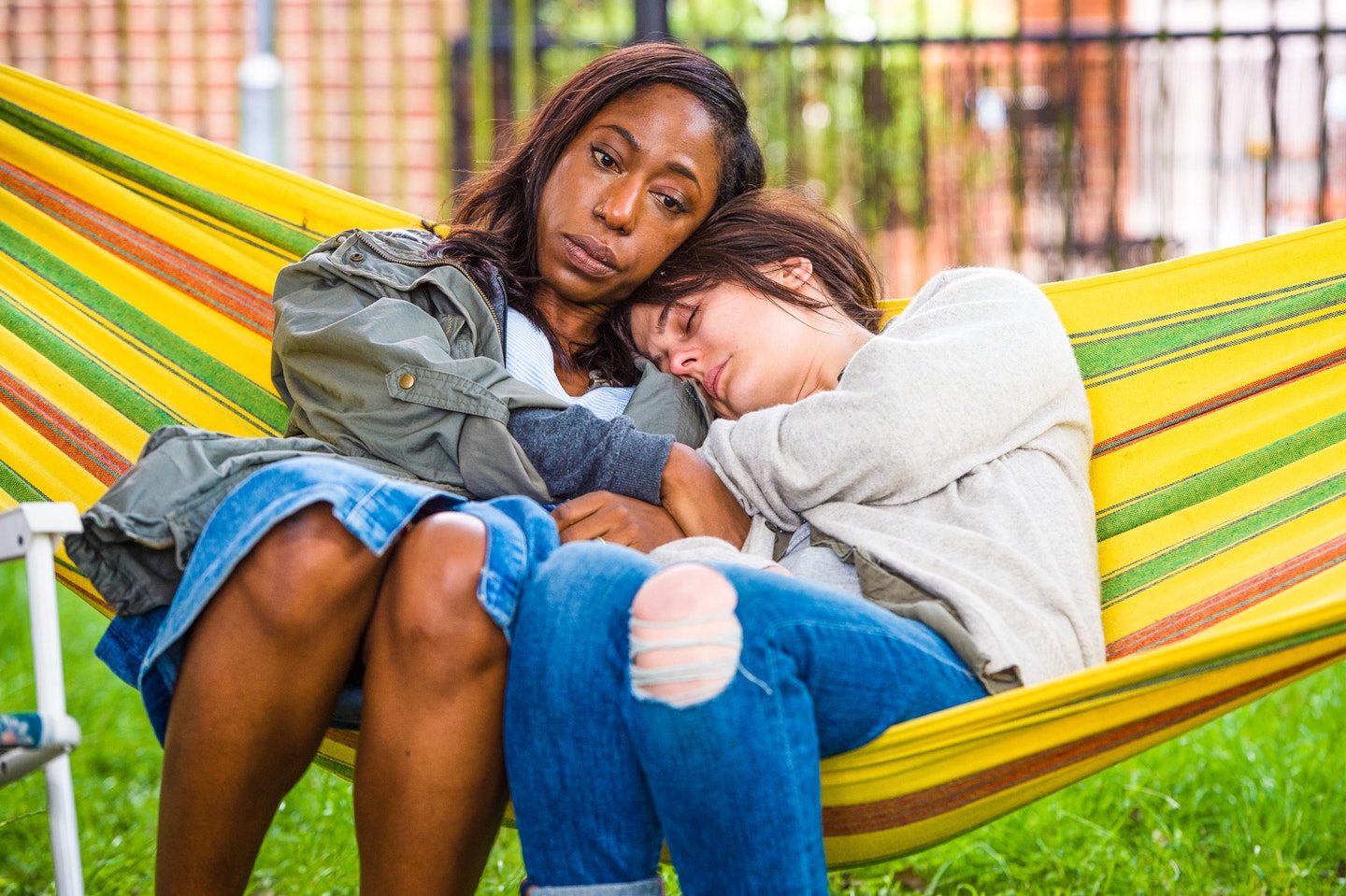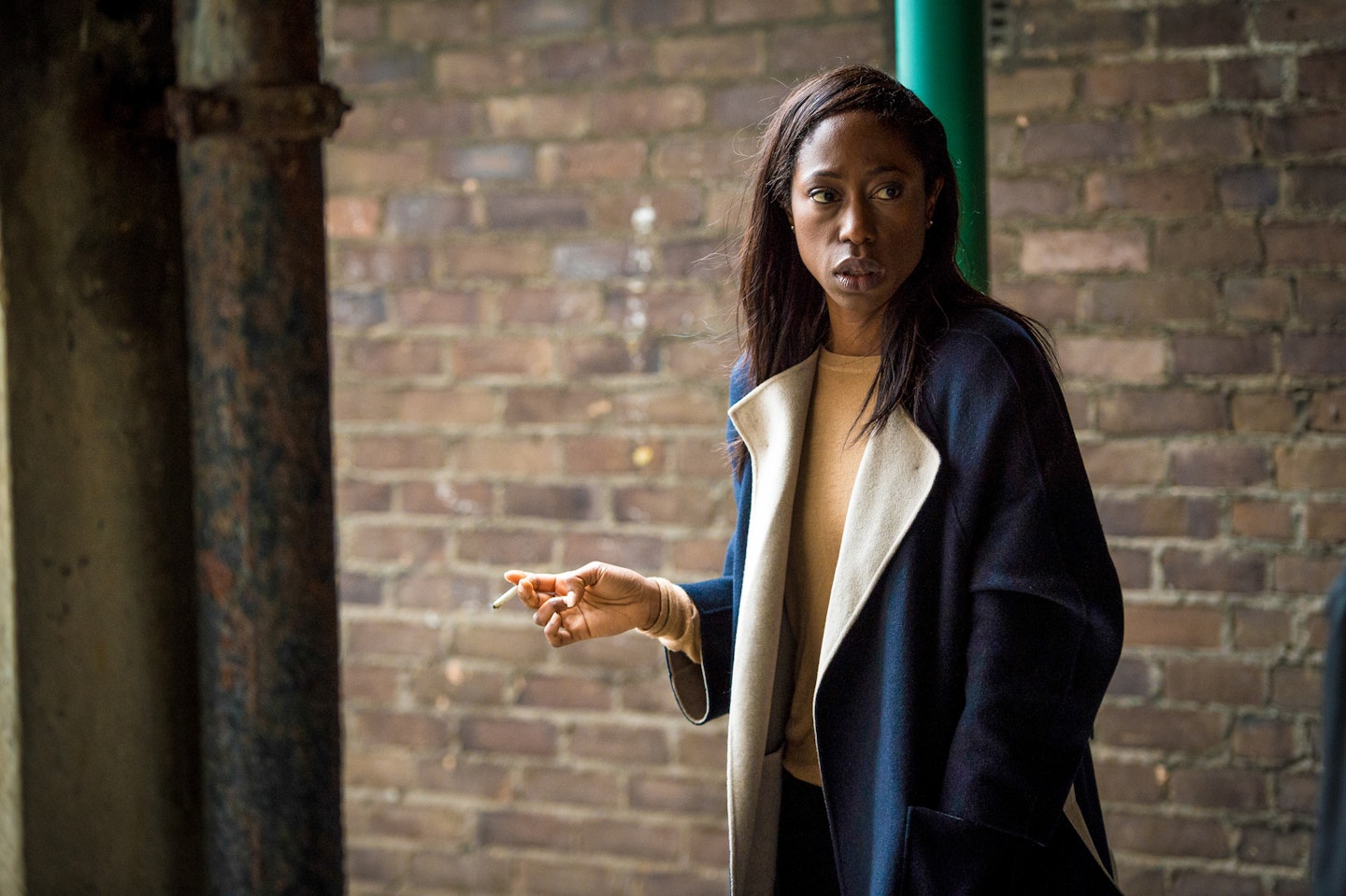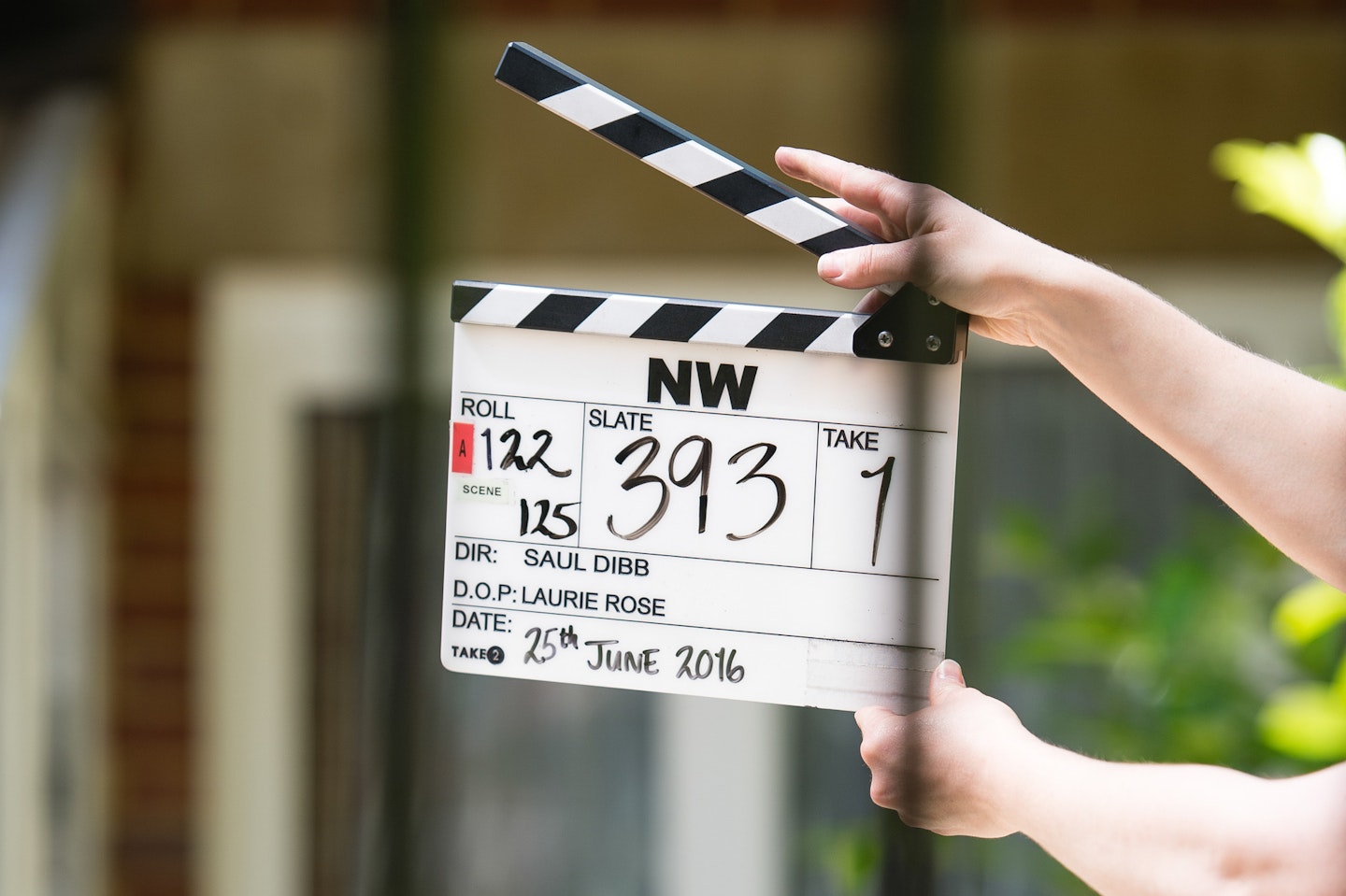Since the arrival of her debut novel White Teeth - published, lest we forget, at the age of just 24 - Zadie Smith has emerged as one of our best chroniclers of twenty-first century London: a reputation that will doubtless be cemented by her latest work, Swing Time.
Just before Swing Time arrives on our shelves, though, comes a BBC Two adaptation of Smith's fourth novel, NW. Anchored (as you'd guess) in the North West of the city, both the book and the 90 minute TV movie show a Londoner's London that's teeming with life, colourful and endlessly recognisable. Luther's Nikki Amuka-Bird and The Hollow Crown's Phoebe Fox star as Natalie and Leah, two old friends from the same estate who have attempted to shake off their beginnings but have found their lives moving in very different directions.
But how do you go about bringing a novel that's proudly post-modern and ostensibly a little 'difficult' to the small screen? We asked NW's screenwriter, Rachel Bennette.
When you first read NW, what did you find most arresting?
The first thing that blew my mind was that there were these two female characters [Natalie and Leah] who had two really profound stories. There are these tensions and conflicts between them that most women would really identify with, and it really excited me to see those really nuanced female characters. I think Natalie as a character is so intriguing – she’s cut off from herself, she’s lost herself and doesn’t even really understand what she’s doing. We all have times like that in our lives when we feel slightly derailed or end up lying to ourselves, and that felt like a story that you don’t often see.
NW isn’t a straightforward novel by any means. What did you take as your starting point when you began working on the adaptation?
It was a funny process, but a brilliant one. As a novel, NW doesn’t obviously show you the way, but the BBC and everyone on the production was very patient about how I found a way through it. It took a year when we were just reading, talking about it on and off, then I remember just having this moment where I saw the opening scene [in which Natalie is standing on the edge of a bridge] in my head. It seemed so obvious that that was where it had to start, with this question mark upon why this character had ended up here. When you’re writing, you do tend to centre things around one character slightly more, and I suppose that Natalie was my starting point – that, and her friendship with Leah.
That friendship between Leah and Natalie is such a major part of the book. How did you go about bringing it from page to screen?

I think the key to the friendship was the idea that you have these two women who can’t see each other’s reality – you have two really old friends who have arrived at a place where they can’t be vulnerable and honest with one another anymore, so they’re almost deliberately showing a new side to each other. I wanted to recreate how they each would see each other through different eyes – with Natalie seeming so perfect to Leah – but also to show that they had these other stories going on that the other wasn’t seeing.
Motherhood plays a big part of these ‘hidden’ stories in different ways. Was that interesting for you to explore?
Motherhood and ‘not’ motherhood is so rarely engaged with – it doesn’t feel like the idea of ‘not’ is ever really expressed. Leah doesn’t want to have a child, but she just can’t get that heard; it’s not something that anyone wants to know. It’s like her life is this juggernaut with everything mapped out – she’s got the husband and the flat, so the next thing would be obvious for her, there’s no feeling of choice. Motherhood isn’t one experience; there are so many different relationships to it and ways of talking about it, honestly or not. It’s really interesting that even though we live in this amazingly free world, there are still these powerful social imperatives that women can be struggling against.
You’ve worked on period adaptations as well as contemporary dramas like NW. Which do you prefer?
I enjoy both. There’s always something interesting about going into the past and looking at how different people behaved – sometimes you can go back and that can show you something about where you are now. There was something really amazing about working on NW, partly because it felt like making a snapshot of our world, and because what it says about where society is now is very strong and very important. There are similarities, too. Think back to a 19th century book – women had to follow certain paths, you had to marry, have children, and interestingly NW is exploring the same sort of stuff, but investigating it differently.
Zadie Smith’s novel jumps back and forth, and has many different narratives. Did you find it hard to structure that into one 90-minute show?
The first draft I wrote, there was a lot of gluing things together, making things really clear and leading everyone through the story. Saul was much less worried about that, so he really trimmed away all of that stuff and hid all of these stories – they still feel like they really connect without needing to be made overt. It’s a difficult book, and it was quite a process to really understand what the core of it was – that if you were stripping stuff away, you were really giving it more power and not less.
In the book, Zadie Smith recreates North London so vividly. Did that make it easier to bring the book to life?

I love London and even when I’ve lived away from it, I’ve always felt like a Londoner. In NW, you’re reading the same world that you’re living in every day. Smith takes that world that’s real and filled with ordinary people but somehow makes it feel cinematic – she makes it feel vibrant, and never humdrum. When you read a novel by Dickens, London just jumps off the page into a film set – this felt the same.
Is screenwriting something you’ve always wanted to do?
I’d always wanted to work in television or film. I started off at the BBC, where I was working on scripts, learning how to construct stories. When I first left university, I probably had a fantasy about being a writer, but wouldn’t have known how to make that happen. But once I started working in the industry, I began more and more to see it as an end, and eventually I took the plunge.
What did you learn from your first jobs in script editing and development?
It was amazing training that really sharpens your storytelling. Mostly, what I learnt was how to tell a story – how to move the narrative forward in a dynamic, interesting way. When I sit down to write now, that really is the main thing – who are these characters, and where are they going?
Do you have any writing rituals, or preferred places to work?

It depends on what stage of the process I’m at. Sometimes, you just need your own space with all your books around you; a calm environment. Sometimes you need to be out in the world. It’s a mixture of the two: sometimes it’s really lovely to be out writing in a café, others you need a quiet zone.
Do you think that new platforms like Netflix are creating more interesting opportunities for screenwriters like yourself?
It certainly feels like a boom time. There’s definitely a lot of interest in series that are in line with the American model, though it’s slightly early days to know how it’s going to go, and whether the British industry will start to do that, too. These channels do seem to foster this adventurous spirit in terms of new stories and writers.
What’s the biggest piece of advice you’d give to someone starting out?
Someone once said to me that being a writer takes a lot of heart, but you also have to have the stomach for it – it’s tough. It is a hard job, not that I’m complaining, obviously! You have to be realistic: it’s demanding, you can be working to deadlines that are really tight, you will get knocked back and rejected. You have to really love writing and really hang in there.
What’s the standout quality of a good script?
There are so many different ways of writing, but for me it’s always character. In the end, when you watch something, you have to care about the characters otherwise you’ll switch off.
NW airs on Monday 14th November at 9pm on BBC Two
READ MORE: The Crown: The £100 Netflix Show You're Going To Love
